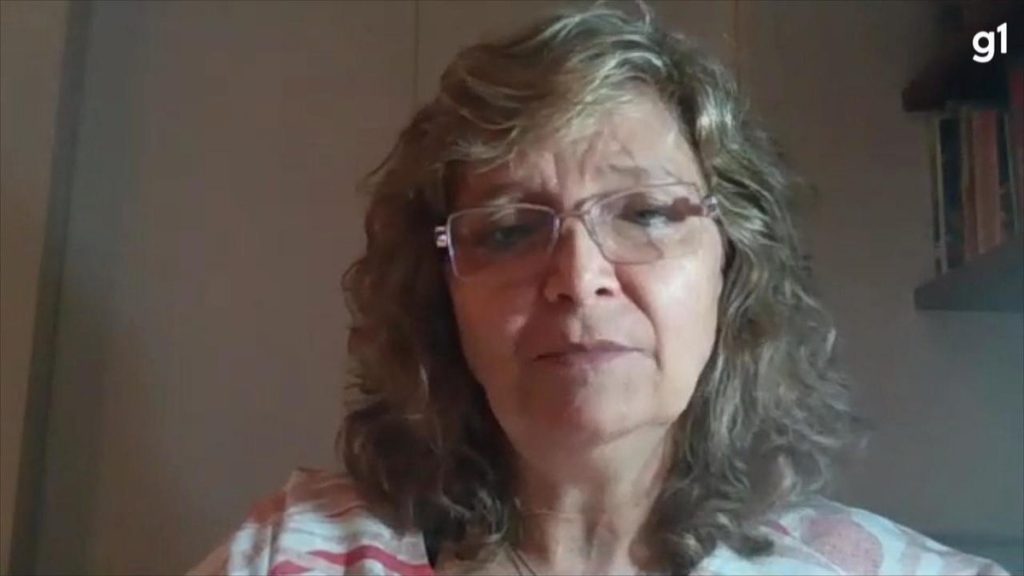For the second year in a row, Professor Claudia Alcaraz Zinni of the Institute of Chemistry at the Federal University of Rio Grande do Sul (UFRGS) makes up the list of the 100 most influential analytical scientists in the world, according to Analytics world. The list, released on October 12, is celebrating its 100th edition this year.
He points out that “Brazil has a research tradition that has been entrenched for decades. We cannot lose this. A country that does not invest in science and technology is doomed to backsliding.”
- Bolsonaro punishes the law that withdraws more than 600 million Brazilian reais to fund science and research
- Science and Technology Minister says he was ‘surprised’
In addition to Claudia, also on the list are Francisco Radler de Aquino Neto, from the Federal University of Rio de Janeiro, and Norberto Piborin López, from the University of São Paulo.
International recognition, for her, is a reason for gratitude to the professors, researchers, students and family members who collaborated with the scientific work. At the same time, this is an incentive for those who are enrolled or want to enter the academic field.
“Without their cooperation, he would not have been listed Analytics world Last year and this year. The researcher’s work includes a team effort that includes many others,” he cites.
The list includes researchers from dozens of countries and looks not just at the previous year, but at an entire career. Claudia was cited in a two-year epidemic. However, they point out that more than the coronavirus, the recent cuts imposed on Brazilian scientific research are the researcher’s biggest enemy.
“Students and researchers, when they have a sufficient base of infrastructure and resources to conduct their research, are able to advance despite the pandemic. Of course, the pandemic affects, to some extent, the progress of work, but less than a lack of resources. No. If you have Resources for basic issues, such as repairing the laboratory floor, ceiling, etc., the more resources there are to purchase expensive equipment, which is necessary for advanced research. It is necessary to review our science and technology policies in all areas of knowledge,” he claims.
- Understand how research resources will be transferred
- See notes from entities
One of the possibilities I mentioned is to expand the scope of private financing and to review the sector’s relationship with universities.
“Brazilian entrepreneurs do not have a culture of investing in research. They should be encouraged to do so through incentives, at first, so that they can better understand the importance of investing in research in practice. Students, researchers and professors all need to be encouraged in a scientific and technological career so that Our country has progress in these areas,” he says.
UFRGS scientist says exchange with international researchers is essential
Another issue is the dissemination of knowledge. In this regard, Claudia recalls the advice of a former professor, in the late 1990s, that all young scientists should aim to develop their work with foreign researchers.
“Firstly because there are no boundaries in science and technology. It is very important to know what is happening in other parts of the world and not isolate yourself in your country, because in this exchange of information and experience there is a lot of progress in scientific research another aspect is that it is much more difficult to recognize within our country From the outside. There is a lot of competition in the academic world, and many colleagues believe that this competition is healthy because it will stimulate professional development. I don’t think so, cooperation is the healthiest thing in human relations and this should prevail in the academy.”
Claudia developed her entire career at UFRGS, from graduating in the 1980s to her Ph.D. in 2002. Currently, she is working on topics such as extraction and separation techniques, and ecological and environmental analytical chemistry. Among the main studies are wine, fruit juices and foods in general to plants, essential oils, bio oils, tar, petroleum, coal, and tar.
Claudia Zinni was included for the second year in a row in the list of the 100 most influential analytic scientists in the world – Photo: Personal Archive

“Hardcore beer fanatic. Falls down a lot. Professional coffee fan. Music ninja.”






More Stories
China releases the most complete geological map of the Moon; look at the pictures
Registration is now open for the third cycle of the Science for All Prize
Sonaka workers win improvements to their health plan